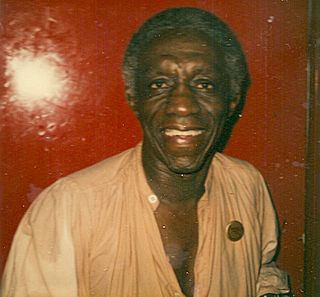
Computer data storage is a technology consisting of computer components and recording media that are used to retain digital data. It is a core function and fundamental component of computers.

Data storage is the recording (storing) of information (data) in a storage medium. Handwriting, phonographic recording, magnetic tape, and optical discs are all examples of storage media. Some authors even propose that DNA is a natural data storage mechanism. Recording may be accomplished with virtually any form of energy. Electronic data storage requires electrical power to store and retrieve data.

Small Computer System Interface is a set of standards for physically connecting and transferring data between computers and peripheral devices. The SCSI standards define commands, protocols, electrical, optical and logical interfaces. The SCSI standard defines command sets for specific peripheral device types; the presence of "unknown" as one of these types means that in theory it can be used as an interface to almost any device, but the standard is highly pragmatic and addressed toward commercial requirements. The initial Parallel SCSI was most commonly used for hard disk drives and tape drives, but it can connect a wide range of other devices, including scanners and CD drives, although not all controllers can handle all devices.
Transition or transitional may refer to:

Edward Lee Morgan was an American jazz trumpeter and composer.

Arthur Blakey was an American jazz drummer and bandleader. He was briefly known as Abdullah Ibn Buhaina after he converted to Islam for a short time in the late 1940s.
Drive or The Drive may refer to:

A USB flash drive is a data storage device that includes flash memory with an integrated USB interface. It is typically removable, rewritable and much smaller than an optical disc. Most weigh less than 30 g (1 oz). Since first appearing on the market in late 2000, as with virtually all other computer memory devices, storage capacities have risen while prices have dropped. As of March 2016, flash drives with anywhere from 8 to 256 gigabytes (GB) were frequently sold, while 512 GB and 1 terabyte (TB) units were less frequent. As of 2018, 2 TB flash drives were the largest available in terms of storage capacity. Some allow up to 100,000 write/erase cycles, depending on the exact type of memory chip used, and are thought to last between 10 and 100 years under normal circumstances.
A kiss is a touch with the lips, usually to express love or affection, or as part of a greeting.

Multi-booting is the act of installing multiple operating systems on a single computer, and being able to choose which one to boot. The term dual-booting refers to the common configuration of specifically two operating systems. Multi-booting may require a custom boot loader.
Non-volatile memory (NVM) or non-volatile storage is a type of computer memory that can retain stored information even after power is removed. In contrast, volatile memory needs constant power in order to retain data.

A live USB is a USB flash drive or external hard disk drive containing a full operating system that can be booted. They are the evolutionary next step after live CDs, but with the added benefit of writable storage, allowing customizations to the booted operating system. Live USBs can be used in embedded systems for system administration, data recovery, or test driving, and can persistently save settings and install software packages on the USB device.
The Sorry Kisses are an English rock band formed in 2006 around the core duo of singer-songwriter Hayley Hutchinson and Sam Forrest of Nine Black Alps.
Hayley Hutchinson is an English folk/acoustic rock singer and freelance illustrator from the Yorkshire Wolds. She has released four solo albums and also co-fronts The Sorry Kisses with Nine Black Alps frontman Sam Forrest.
A worm is an animal with a long cylindrical tube-like body and no limbs.
This glossary of computer hardware terms is a list of definitions of terms and concepts related to computer hardware, i.e. the physical and structural components of computers, architectural issues, and peripheral devices.
In computer security a countermeasure is an action, device, procedure, or technique that reduces a threat, a vulnerability, or an attack by eliminating or preventing it, by minimizing the harm it can cause, or by discovering and reporting it so that corrective action can be taken.
Race, RACE or "The Race" may refer to:
Solid-state storage (SSS) is a type of non-volatile computer storage that stores and retrieves digital information using only electronic circuits, without any involvement of moving mechanical parts. This differs fundamentally from the traditional electromechanical storage, which records data using rotating or linearly moving media coated with magnetic material.
This page is based on this
Wikipedia article Text is available under the
CC BY-SA 4.0 license; additional terms may apply.
Images, videos and audio are available under their respective licenses.







